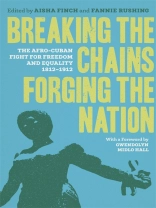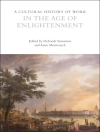Breaking the Chains, Forging the Nation offers a new perspective on black political life in Cuba by analyzing the time between two hallmark Cuban events, the Aponte Rebellion of 1812 and the Race War of 1912. In so doing, this anthology provides fresh insight into the ways in which Cubans practiced and understood black freedom and resistance, from the aftermath of the Haitian Revolution to the early years of the Cuban republic. Bringing together an impressive range of scholars from the field of Cuban studies, the volume examines, for the first time, the continuities between disparate forms of political struggle and racial organizing during the early years of the nineteenth century and traces them into the early decades of the twentieth.
Matt Childs, Manuel Barcia, Gloria García, and Reynaldo Ortíz-Minayo explore the transformation of Cuba’s nineteenth-century sugar regime and the ways in which African-descended people responded to these new realities, while Barbara Danzie León and Matthew Pettway examine the intellectual and artistic work that captured the politics of this period. Aisha Finch, Ada Ferrer, Michele Reid-Vazquez, Jacqueline Grant, and Joseph Dorsey consider new ways to think about the categories of resistance and agency, the gendered investments of traditional resistance histories, and the continuities of struggle that erupted over the course of the mid-nineteenth century. In the final section of the book, Fannie Rushing, Aline Helg, Melina Pappademos, and Takkara Brunson delve into Cuba’s early nationhood and its fraught racial history. Isabel Hernández Campos and W. F. Santiago-Valles conclude the book with reflections on the process of history and commemoration in Cuba.
Together, the contributors rethink the ways in which African-descended Cubans battled racial violence, created pathways to citizenship and humanity, and exercised claims on the nation state. Utilizing rare primary documents on the Afro-Cuban communities in the nineteenth and twentieth centuries, Breaking the Chains, Forging the Nation explores how black resistance to exploitative systems played a central role in the making of the Cuban nation.
Mengenai Pengarang
Aisha Finch is associate professor of gender studies and African American studies at the University of California at Los Angeles and the author of Rethinking Slave Rebellion in Cuba: La Escalera and the Insurgencies of 1841–1844. Fannie Rushing is professor of history at Benedictine University.












